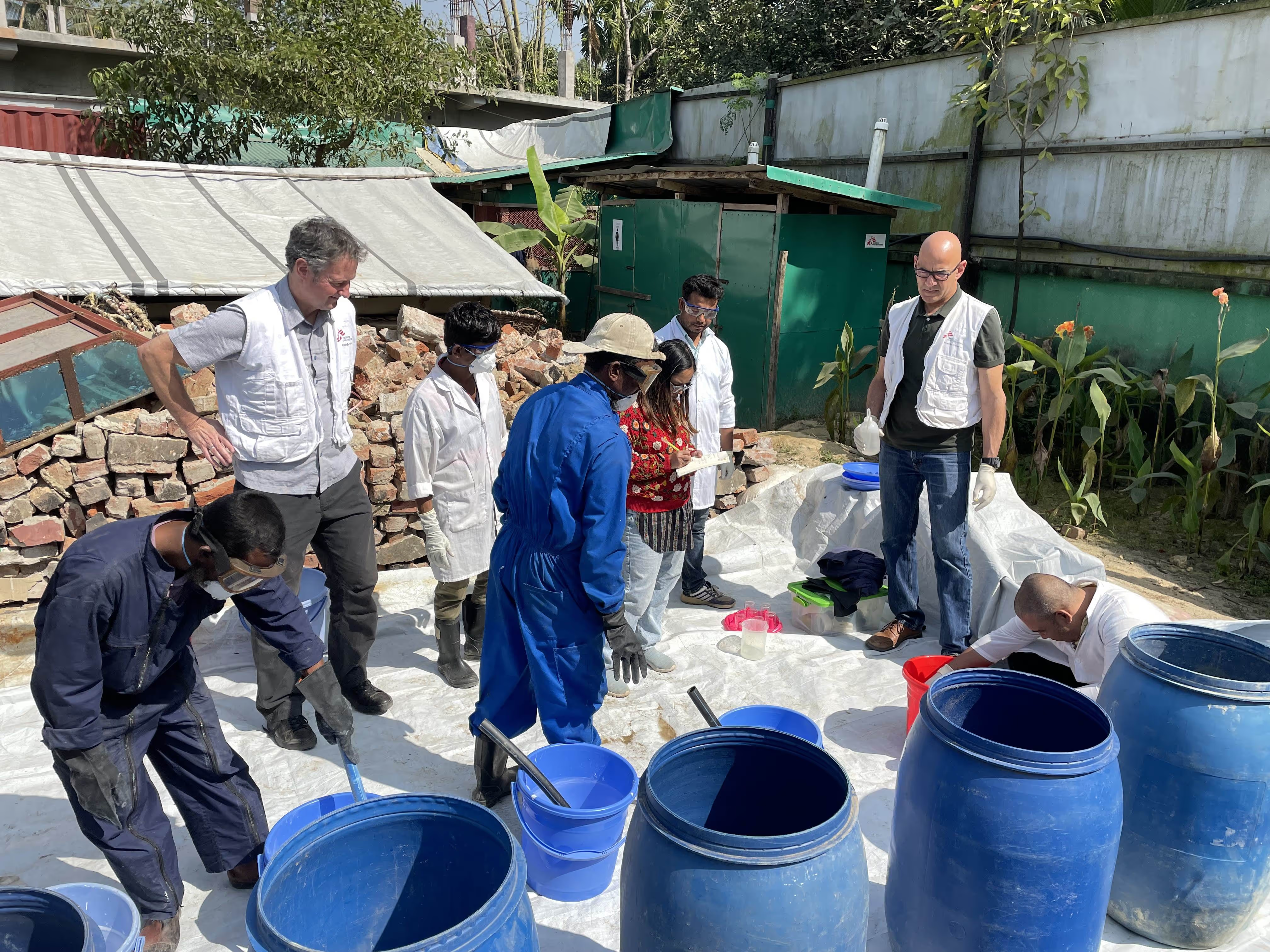How does Cognitive Processing Therapy work in the DRC?

A person suffering from trauma can struggle to deal with memories of a traumatic event and often has difficulty understanding and processing what has happened. Survivors of sexual violence often avoid thinking about or dealing with difficult memories because this can lead to intense feelings of fear or shame.
Cognitive Processing Therapy (CPT) gives survivors of sexual violence a new way to manage distressing thoughts and helps them to view past events in a more realistic way, so they can achieve more balanced memories. Following the therapy, memories of a traumatic event do not trigger such intense, upsetting emotions, and survivors can return to a more normal life.
In the Democratic Republic of Congo, survivors of sexual violence receive three months of CPT therapy, with one session a week. The first session is one-on-one with a therapist, and the following sessions are in a group. Each group includes a small number of survivors of sexual violence, from 4 to 9 people, to allow therapists to monitor each survivor and their special needs during the therapy. Survivors learn key coping methods through group sessions with therapists and homework, which they are asked to practice outside of the meetings.
The therapy consists of four key phases:
First, survivors learn about the therapy process, beginning to understand their trauma symptoms and the impact of the trauma on their lives. Let’s take the example of a Stella , a woman who was raped in her home during an armed attack in South Kivu. In Stella’s first phase of therapy, she learns to identify how the attack has impacted her life and what symptoms of trauma she is experiencing.
Next, a survivor learns to be more aware of their memories and emotions, identifying the connection between events, thoughts and feelings and gaining skills to distinguish between them. For Stella, this means differentiating between her memories of the attack and the emotions that these memories create, such as anger, fear, guilt, hatred and shame. Through this process, she can learn to take a step back and assess how the trauma is affecting her day-to-day life. During this phase, survivors begin to identify ‘stuck’ thoughts, which they have had trouble moving past or understanding in a realistic way. For example, because Stella’s home is associated with a traumatic event in her mind, she has felt unsafe there since the incident occurred, and may think ‘to avoid being raped, next time there is fighting I won’t stay at home’. The trauma and intensely negative emotions associated with her memories of the event stop Stella from getting past the idea that her home is not a good place to be, which in turn prevents her from feeling safe and moving forward with her life.
To address this concern, the third phase of CPT helps a survivor to question or challenge these ‘stuck’ thoughts. By being asked, and asking herself a series of questions about the distressing thought, the survivor begins to understand it more realistically. This helps each individual to decide how they want to think and feel about their trauma, and begin to balance these thoughts. Stella will work through a series of questions that will help her to understand this thought in a different way. For example, ‘Is she raped every time she stays at home?’, or ‘Are other women never attacked outside their homes?’. In answering no to these questions, Stella will learn that being raped is not a logical result of staying at home. This more balanced thought process can help Stella to move past the ‘stuck’ thought and better cope with the results of trauma.
In the last phase of the CPT process, participants learn to understand behavioral changes that are commonly experienced after going through trauma. Their beliefs about trust, safety, control, relationships with others and their own self-esteem can change. During the CPT process, survivors can talk about these beliefs – and the changes – in a safe, supportive environment, and regain some of the feelings and beliefs they held before they experienced violence.
With this support, survivors like Stella can begin to move forward with their lives, feeling more positive about themselves and their futures.
The IRC’s Women’s Protection and Empowerment program has worked in the North and South Kivu provinces of the Democratic Republic of Congo since 2002, providing essential medical, psychosocial and legal services to over 12,000 survivors of gender-based violence since 2009. Cognitive processing therapy, provided together with case management and psychosocial support, helps survivors to recover and heal. Approximately 100 survivors will receive CPT services during this pilot project. Alongside these services, the IRC also creates social and economic opportunities for women and girls, works with communities to promote supportive environments, and helps to raise their voices through advocacy at local, national and international levels.
Stay updated
Sign up for our newsletter to receive regular updates on resources, news, and insights like this. Don’t miss out on important information that can help you stay informed and engaged.
Related articles



Explore Elrha
Learn more about our mission, the organisations we support, and the resources we provide to drive research and innovation in humanitarian response.